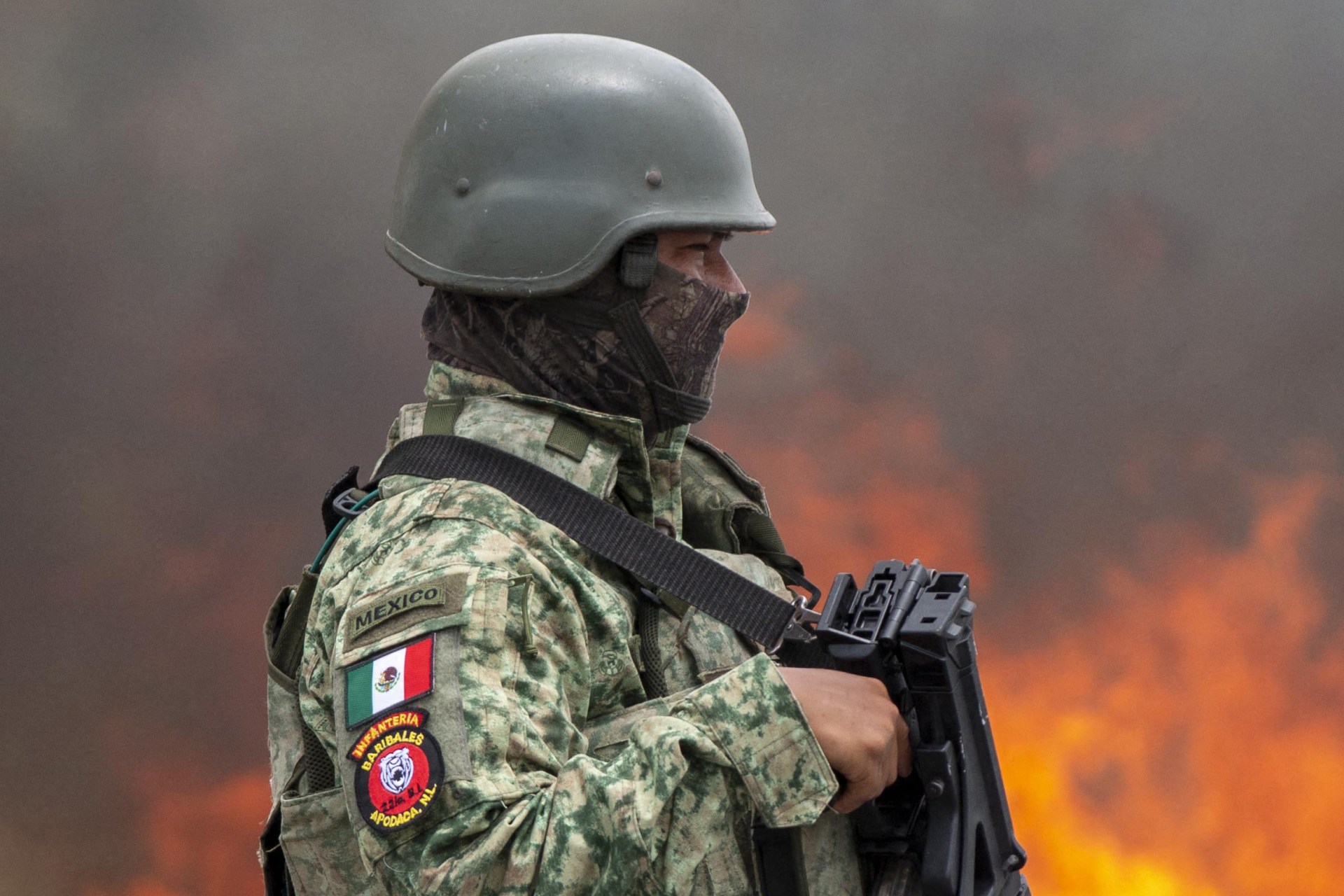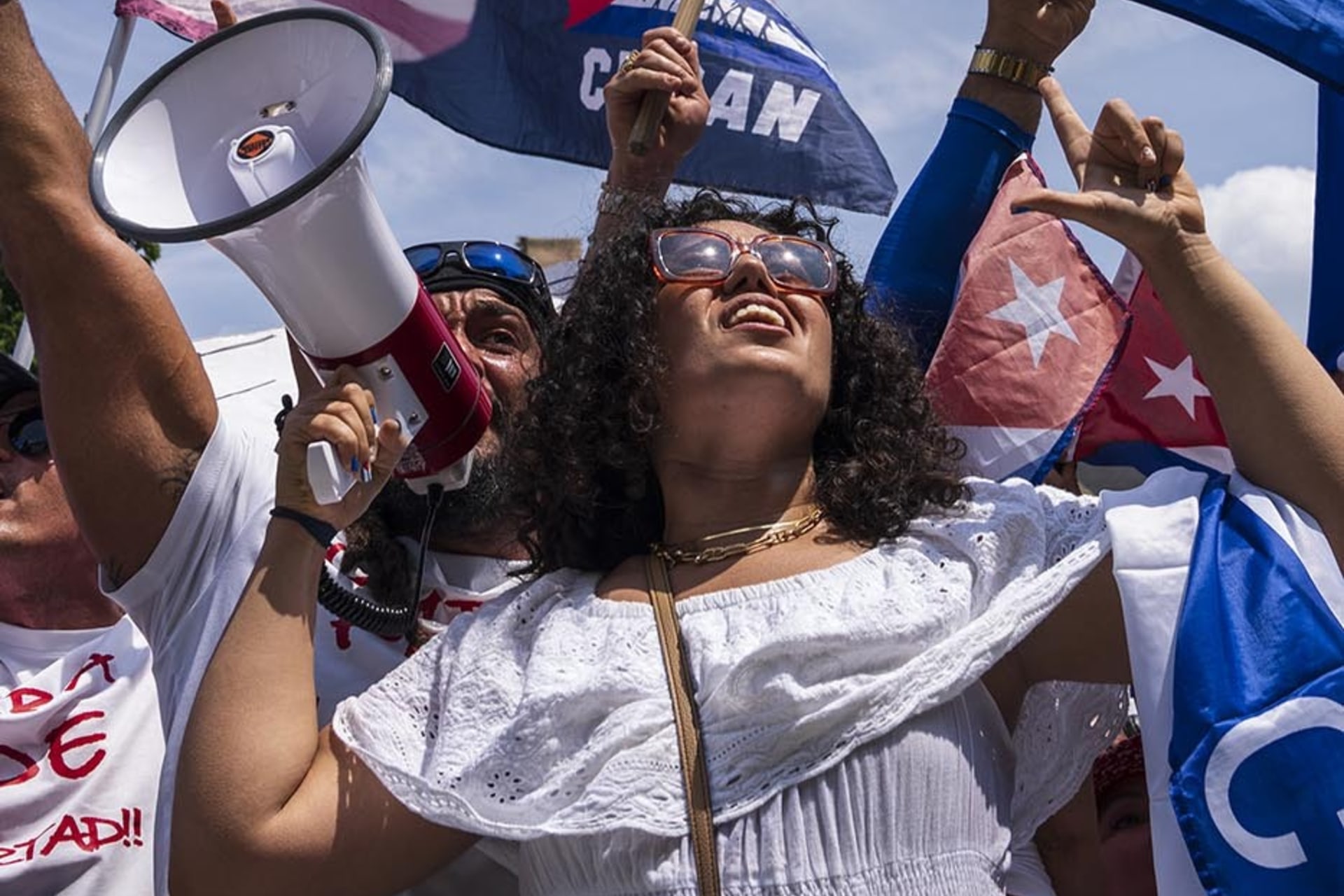Nigeria’s Creaky Political System
Published
Nigeria has made progress since its return to democracy in 1999. But a political system crippled by corruption and dogged by ethnic tensions threatens to derail the country from its path toward good governance.
This publication is now archived.
Introduction
As Africa’s most populous country, oil-rich Nigeria ranks with South Africa as one of the most influential countries on the continent. Since its return to democracy in 1999, Nigeria has made some progress on strengthening government institutions and fighting the corruption engendered by its oil wealth. But political violence ahead of April elections, the fragility of the federalist system, and continued clashes caused by pervasive ethnic and religious tensions raise questions about Nigeria’s ability to continue on its path toward good governance.
Has Nigeria made progress under Obasanjo?
Yes. President Olusegun Obasanjo spearheaded the creation of an agency to fight corruption, consolidated the banking sector, and reformed the pension system. Under his leadership, Nigeria received $30 billion in debt relief from the Paris Club of donor countries. “There has been decisive movement toward economic and institutional reform,” says Peter M. Lewis, director of the Africa program at Johns Hopkins School of Advanced International Studies (SAIS).
Political reform has lagged, however. Obasanjo’s attempt in 2006 to change the constitution to allow him to run for a third presidential term drew strong criticism from within Nigeria as well as internationally. Some experts say the fact that Nigeria survived the ensuing political turmoil proves that the country has progressed since 1999. “The democratic system has shown some resilience,” said Rotimi Suberu of the University of Ibadan at a March 9 panel on Nigerian politics at SAIS.
How is Nigeria’s government structured?
Like the United States, Brazil, and India, Nigeria is structured as a federation, a structure it inherited from its British colonial rulers. It has thirty-six states, one federal territory, and 774 municipalities (plus Abuja). Yet power resides in the central government, which controls most of the country’s revenues and resources. A 2005 constitutional review attempted to address the controversy over revenue sharing and the tenure of the president and state governors, but ended without progress after the introduction of an amendment that was widely seen as a political move to extend Obasanjo’s time in office by two years.
Experts agree constitutional reform should be taken up by the new administration. “Many of Nigeria’s internal conflicts are manifestations of the structural and political flaws of its federalist framework,” argues an International Crisis Group report on federalism in Nigeria. Suberu, in his book Federalism and Ethnic Conflict in Nigeria, suggests that a stronger federalist system that reduces the power of the central government would counteract “cake sharing” fixation, in which states scramble for a bigger piece of federal monies rather than expanding the overall country’s output. Lewis says there is a “constitutional crisis” and many reforms—including revenue-sharing and electoral procedures—which would have improved the constitution were quashed because they were part of the same omnibus bill that proposed changing the presidential term.
How is Nigeria’s oil revenue distributed?
The federal government owns the nation’s natural resources, including oil and natural gas, and thus controls the process of granting contracts to multinational partners. Under the derivation formula inserted in the 1999 constitution, no less than 13 percent of oil revenues must be returned directly to the states from which the revenue was produced. This revenue accrues in the Federation Account, where it is allocated monthly by the Revenue Mobilization, Allocation, and Fiscal Commission, a federal executive body.
You won’t find too many places around the world where the ruling party can simply say ‘Trust us. We’re doing everything in a smoke-filled room and there is no accountability but we are entirely committed to anticorruption,’” says Lewis.
Between 2000 and 2004, the states experienced a fifty-fold increase in revenue from the federal state. The four major oil-producing states—Delta, Rivers, Bayelsa, and Akwa Ibom, received roughly twice as much as the other states. Yet the states, often run by autocratic governors, spend inconsistently and without much accountability. Oil-state representatives, perhaps because they have seen little benefit from the rise in revenue, have lobbied for 20 to 25 percent derivation, and militant groups in the Niger Delta such as MEND have demanded up to 50 percent.
How does corruption affect national politics?
Among those who track corruption, Nigeria is a poster child for the “resource curse.” According to the World Bank, some 80 percent of oil monies are accrued by 1 percent of the population. Under international and domestic pressure, the federal government has made efforts to combat corruption: In 2006, the federal government began publishing the monthly amounts it distributed to states and local government areas, and it has also established several anticorruption government agencies. But the ruling party conducts most of its anticorruption work behind closed doors. “You won’t find too many places around the world where the ruling party can simply say ‘Trust us. We’re doing everything in a smoke-filled room and there is no accountability but we are entirely committed to anticorruption,’” says Lewis.
The most egregious graft happens at the state level. Governors “run their states like personal fiefs,” writes the Economist. These “big men” are not accountable to the general population because they receive most of their money from the central government, and when they run for office, they rely on “godfathers,” or ethnic and political elites who sponsor candidates with the understanding that they will reap the financial benefits once the candidate takes office. Pervasive corruption at every level of government has fostered similar sentiments in the populace. For the Nigerian people, “democracy has become a kind of blackmail. They will take anything they can get,” says Reuben Abati, chairman of the editorial board of Nigeria’s Guardian newspapers
How does the federalist structure influence ethnic and regional tensions?
Experts say the dysfunctional federalist structure, while limiting the national influence of any single ethnic group, has inflamed ethnic conflict within states and local communities. An International Crisis Group report says the “cancerous growth of state structures” has created bureaucratic obstacles, administrative rivalries, and a proliferation of “minorities” within the numerous local government areas. Nigeria contains more than 250 ethnolinguistic groups and about seventy “nationalities.” Roughly half Nigeria’s states have primary ethnic identities, but since the country’s independence in 1960, the influence of the majority ethnic group in each state has waned as the government structure has expanded. Suberu argues that this expansion mitigates ethnic tension by diluting the intensity of conflict between the country’s three main ethnic groups.
While there have not been any national ethnic conflicts, Lewis notes that there is an upward trend in overall ethnic incidents at the local level. Since 1999, more than three million have been displaced and at least fourteen thousand killed by interethnic conflicts, most of which stemmed from a constitutional provision instituted in 1979 that differentiates between the so-called “indigenes” of a states and “settlers” or “non-indigenes.” “There are not large heavily mobilized ethnic militias or ethnic blocs,” he says. “There is no single fault line driving these things.” A Council Special Report on Nigeria writes that almost all of these conflicts are over resources. “Trading privileges, employment possibilities, welfare payments, water access, and land rights are continually contested,” it says.
How does the federalist structure influence religious tensions?
At the local level, divisiveness over religious issues has exacerbated and at times trumped ethnic rivalries, according to the International Crisis Group report. Under Obasanjo’s presidency, a Pentecostal and evangelical revival in the south paralleled a rise of fundamental Islam in the north. An upsurge in violence in the Middle Belt reflects this tension between the north and south. But as with ethnic disputes, there have not been any large-scale conflicts. Religious organizations act as alternatives to the state, and some argue that the weakness of government institutions, rather than ideological fervor, precipitated the religious revival.
Others say federalism has helped contain religious divisions within the states, preventing them from becoming national issues. Though twelve states in the north implemented sharia law between 1999 and 2000, its proponents have not tried to extend it beyond their states. “Nigeria offers a sharp contrast with Sudan,” Suberu says. “In Sudan, sharia became a national issue. In Nigeria, it has been substantially contained.” Yet a majority of Nigerians identify themselves by religion over nationality, according to a May/June 2006 survey conducted by the Pew Forum on Religion and Public Life.t
How strong are Nigeria’s institutions?
- Judicial system. The independence of the judiciary in the run-up to April’s elections surprises experts. It has been “nothing short of remarkable,” says Lewis. Separate segments of the court have ruled against Obasanjo’s administration in several instances, a major sign of institutional strength. Yet some think the judicial system has a long way to go. It “continues to be more of an aspiration than a Nigerian reality,” writes the Council Special Report.
- Independent National Electoral Commission (INEC). INEC has been widely criticized for mismanaging the electoral process, and there is little confidence in the institution among the Nigerian population because its actions are not transparent. The chairman of the group is nominated by the president and its funding comes entirely from the executive branch. “It continually cobbles together elections at the last minute,” says Lewis. “It’s unnecessary because they do have a blueprint for running elections.” Suberu says reform of INEC, more than any other constitutional reform, is “critical for the development of democracy in Nigeria.”
- Economic and Financial Crimes Commission (EFCC). Led by Nuhu Ribadu, the EFCC has gone after thirty-one of Nigeria’s thirty-six governors. It sent nearly two thousand people to prison in its first three years of operation (no one had ever been found guilty of corruption in a civil court before). But like INEC, the EFCC has been criticized for what some call selective prosecution (A February announcement by the EFCC of 130 political candidates who would be charged with corruption—including an opposition candidate for president—raised concern that the commission is being used by Obasanjo to strengthen his party and manipulate the April elections). But some argue the Nigerian government is so corrupt that any move to crack down on its culture of impunity sends a positive signal to the population.
- Civil society and the opposition. Experts say civil society and the opposition are active and growing in strength. In a report for the United States Institute of Peace, Jibrin Ibrahim writes that civil society “played a major role” in the fight against a third term for Obasanjo, and even religious leaders joined in condemning the third-term proposal. While civil society remains fragmented, experts say the April elections have drawn many groups together to combat repression and political violence.
- Media. Nigerians benefit from some of the strongest and liveliest media outlets in Africa. “They operate with a great deal of vigor and independence and consistently challenge the authorities on their political performance,” says Lewis. All thirty-six states operate radio stations, and there are more than one hundred national and local newspapers. In the March 9 panel at SAIS, Ibrahim said “All the headlines are about the return of Nigerian institutions.”
Colophon
Staff Writers
- Stephanie Hanson





